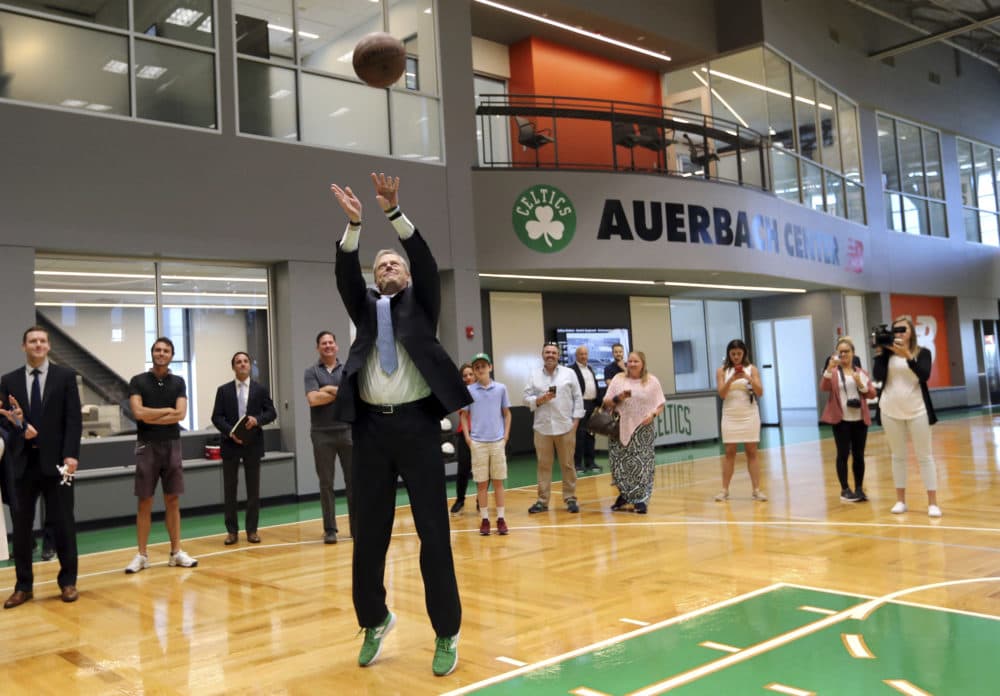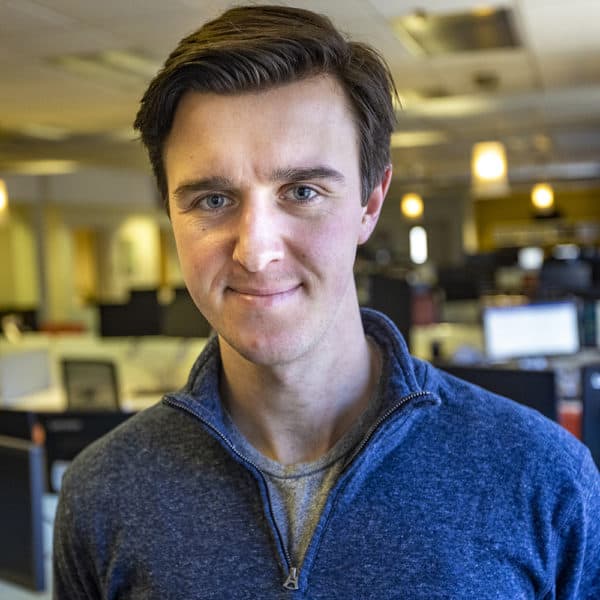Advertisement
Boston's Morning Newsletter
Here's why the NCAA picked Charlie Baker, according to insiders and observers

Editor's Note: This is an excerpt from WBUR's daily morning newsletter, WBUR Today. If you like what you read and want it in your inbox, sign up here.
TGIF! If any other prominent elected officials or institutions have big job news they'd like to announce, can you please do so soon? Because some of us need to finish our holiday shopping.
To the news:
Gov. Charlie Baker says his new gig as incoming NCAA president was "nowhere near my mind" a year ago when he decided not to run for reelection. But then "a couple months ago," the NCAA approached him. Why? Baker's only college sports experience is as a basketball player at Harvard; he spent most of his career in government and health care administration. But at this tumultuous moment for the NCAA, insiders and observers say that's what the organization needs.
- Smith College economics professor Andrew Zimbalist told WBUR's Walter Wuthmann that Baker's political experience is the "obvious reason" the NCAA picked him. That's because the NCAA — reeling from court losses, including a Supreme Court decision allowing college athletes to make money from advertising deals — has been seeking the help of Congress to regulate the changing landscape. The NCAA also wants an antitrust exemption that would shield the organization from additional lawsuits that could force it to pay college athletes. "They want a politician who will be able to work the scenes in Congress," Zimbalist said.
- In their words: "When you consider the priorities we have right now in the NCAA, it's hard to imagine a better fit than Governor Baker," Linda Livingstone, the chair of the NCAA Board of Governors, told reporters Thursday, adding that he has "showed a talent for working across party lines."
- Another reason Baker got the job: a good reference from Red Sox CEO Sam Kennedy. Len Perna, a recruiter who helped the NCAA with the search for a new president, told Sports Business Journal that he called his friend Kennedy for help: "I mentioned to Sam the NCAA is looking for an executive who is passionate about higher education, ran a business and was also in government,” Perna said. "Sam laughed and said, ‘I think I might actually have somebody. Ever heard of Charlie Baker?’ "
- What's next: Zimbalist says the antitrust exemption sought by the NCAA faces opposition from Democrats in Congress. But he does expect some form of legislative action in the near future — even if it's just trying to form a commission to study college sports and make recommendations. Baker also expressed optimism Thursday about potential action from Congress: "I've always just believed that sports have this tremendous power to bring people together."
Almost eight years after the project was first proposed, construction is slated to begin next month on the controversial East Boston electric substation. WBUR's Miriam Wasser has the scoop on the plans here.
- Wasser reports that local environmental justice advocates, who have long opposed the project, were taken aback by how quick Eversource is moving ahead with construction after getting final approval last month. And they're not optimistic they'll be able to get a hearing for their planned appeal of the substation's special environmental certificate in time to stop construction.
Boston Mayor Michelle Wu is officially moving to fulfill a campaign pledge: overhauling the city's Inclusionary Development Policy, which requires developers to support a certain amount of affordable housing in order to get larger projects approved. It's one tool in the toolbox of ways to try to alleviate the city's affordable housing shortage.
- Currently, Boston's IDP policy requires developments with 10 or more units to include at least 13% income-restricted units (which developers can also build somewhere else or pay the city to build). Wu's proposal would increase the minimum percentage to 20%, while lowering the threshold to projects with seven or more units.
- Wu is also proposing to hike the city's linkage fee, which charges commercial developers to support affordable housing. Both proposals have to go through a public hearing process and get approval from various city boards before taking effect. (Officials say that neither will affect any project currently under review.)
Heads up, transit-goers: There are two big, partial MBTA line shutdowns on the docket for this weekend so crews can do some track work.
- Shuttle buses will replace the Red Line's Ashmont leg and all of the Green Line's B Branch west of the Babcock Street stop.
P.S.— Which team did former Red Sox player Xander Bogaerts sign with recently? Do you know the answer? Take our Boston News Quiz and test your knowledge on the stories we covered this week.
